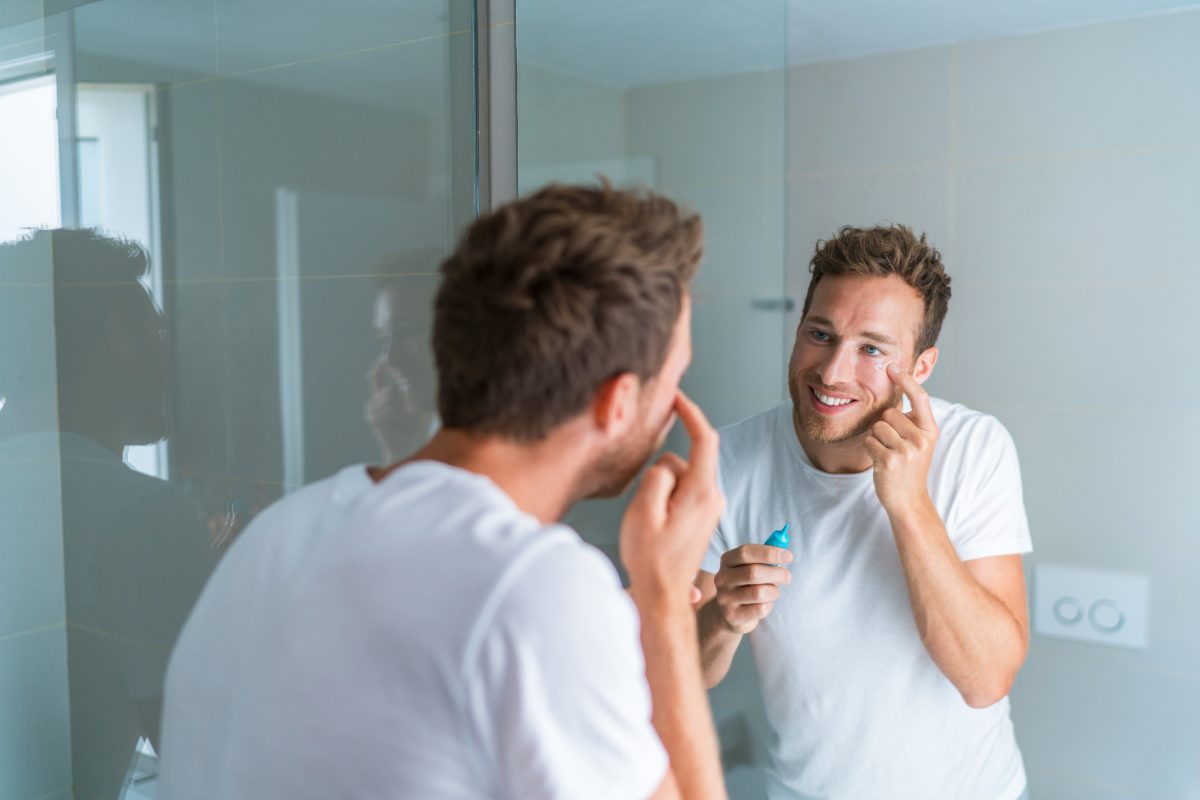Home » Featured Articles » Can topical retinoids solve your acne woes?
Can topical retinoids solve your acne woes?

If you’re looking for a simple and effective acne treatment, topical retinoids may be the answer.
Acne can be a real killjoy. The good news is, there are effective ways to treat your acne. The challenge is sorting out what works and what doesn’t.
Well, we can tell you that topical retinoids do work – but you need to stick it out long-term.
A topical retinoid is a medicated cream or gel that you apply to your skin. Your doctor may prescribe it to help clear your acne.
Topical retinoids not only treat your acne, they can also help prevent acne scarring.
What is a topical retinoid?
‘Topical’ simply means you apply the product to your skin, which is different from an oral medication that you swallow.
A retinoid is a chemical that is derived from Vitamin A. We already have retinoids in our body, and they help our immune function, vision, cell regulation, and bone tissue growth. Retinoids have also been used in medicine for different reasons, including to treat acne.
Dermatologist Dr JoAnn See says that topical retinoids work in different ways to treat acne.
“Topical retinoids contain active ingredients that work at a cellular level to unblock the pore and even reduce inflammation,” Dr See says.
Yes, topical retinoids work for treating acne.
There are several studies that show topical retinoids work are effective at treating acne.
One study found that acne on the face improved significantly or completely after 12 weeks for four out of ten people. More than half of the study participants saw an improvement after 26 weeks, and 66% saw an improvement after 52 weeks.
“Topical retinoid treatments for acne are safe and can be used long-term,” says Dr See. “They reduce visible blemishes on the skin, and they also prevent acne scars from developing.”
Retinoid side effects are usually short-term
Dr See says when you start using a retinoid treatment, your acne may get worse before it gets better. In the short term, retinoids may cause some breakouts, blackheads, redness, dryness or stinging while your skin adjusts to the treatment.
While this might be annoying, it means the treatment is working. Your skin is accelerating the turnover of new cells — you’ll be shedding dead skin more quickly which can make breakouts seem worse in the short-term.
But the good news is, your skin will gradually clear within a few weeks, and the breakouts should settle.
Dr See says these side-effects are most likely to occur on your face.
“That may be because the skin on our face is thinner than on other parts of the body, and often remains unprotected from UV light, temperature and pollution,” she says.
Dr See advises: “If any irritation occurs, the topical retinoid treatment could be applied every second day until the skin tolerability increases. Another tip is to add a moisturiser.”
Once your acne has cleared, how do you keep it that way?
It’s important to look after your skin long-term, which is often referred to as ‘maintenance therapy’. When it comes to topical retinoids, this means continuing to use it after your skin has cleared.
Dr See says you can use topical retinoids for up to a year, which is supported by the current research.
So, what else should you do to keep your skin healthy?
Dr See says to wear a broad spectrum SPF50+ sunscreen on your face daily, as acne treatments such as topical retinoids can make you more sensitive to UV light. She also says to moisturise regularly to help keep your skin barrier healthy.
“Focus on three main steps,” Dr See says. “Cleanse, treat and protect.”
This article is a good guide for skin care for acne, based on advice from our dermatologists.
Ask your doctor if topical retinoids are right for you
Talk to your GP or dermatologist about how to best manage your acne. Your dermatologist will be able to give you individual advice about your skin and how to treat acne in a safe and effective way.
Your doctor may prescribe topical retinoids to treat your acne.
Everyone’s skin reacts differently to new treatments. Make sure you chat to your doctor if you have any concerns about how your skin is adjusting to retinoids.
This article was written by the All About Acne team and sponsored by Galderma.
